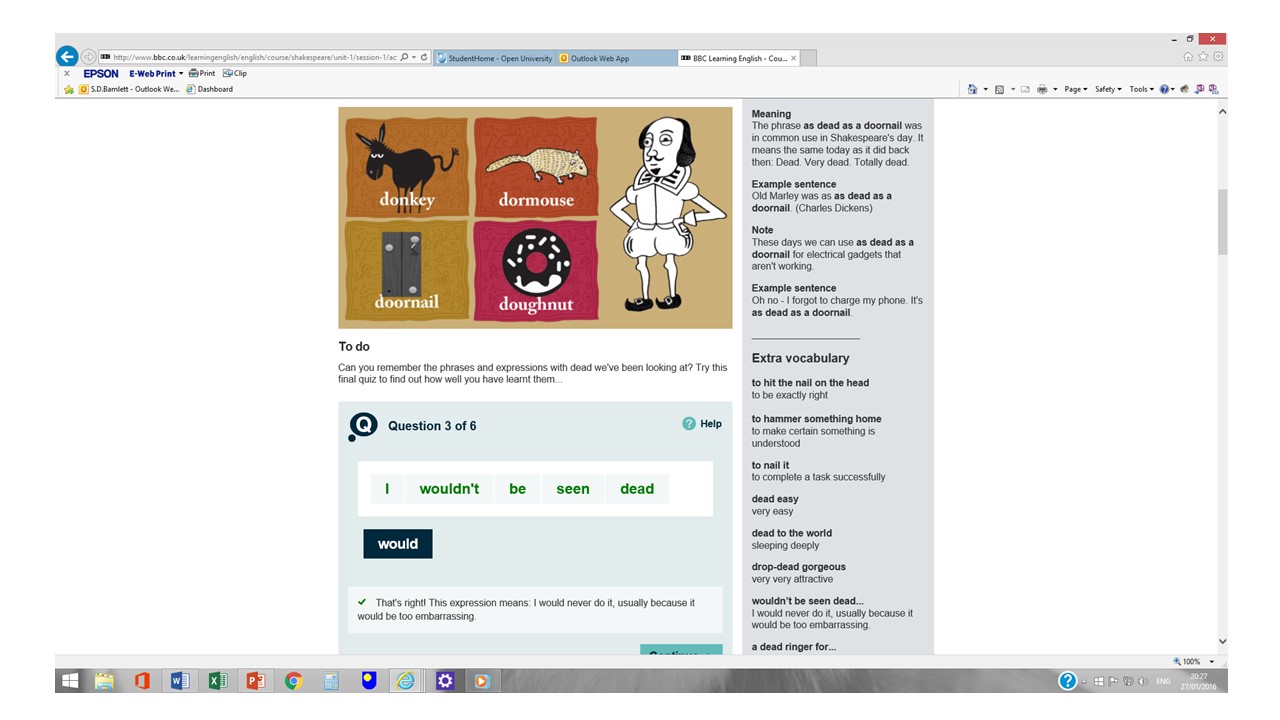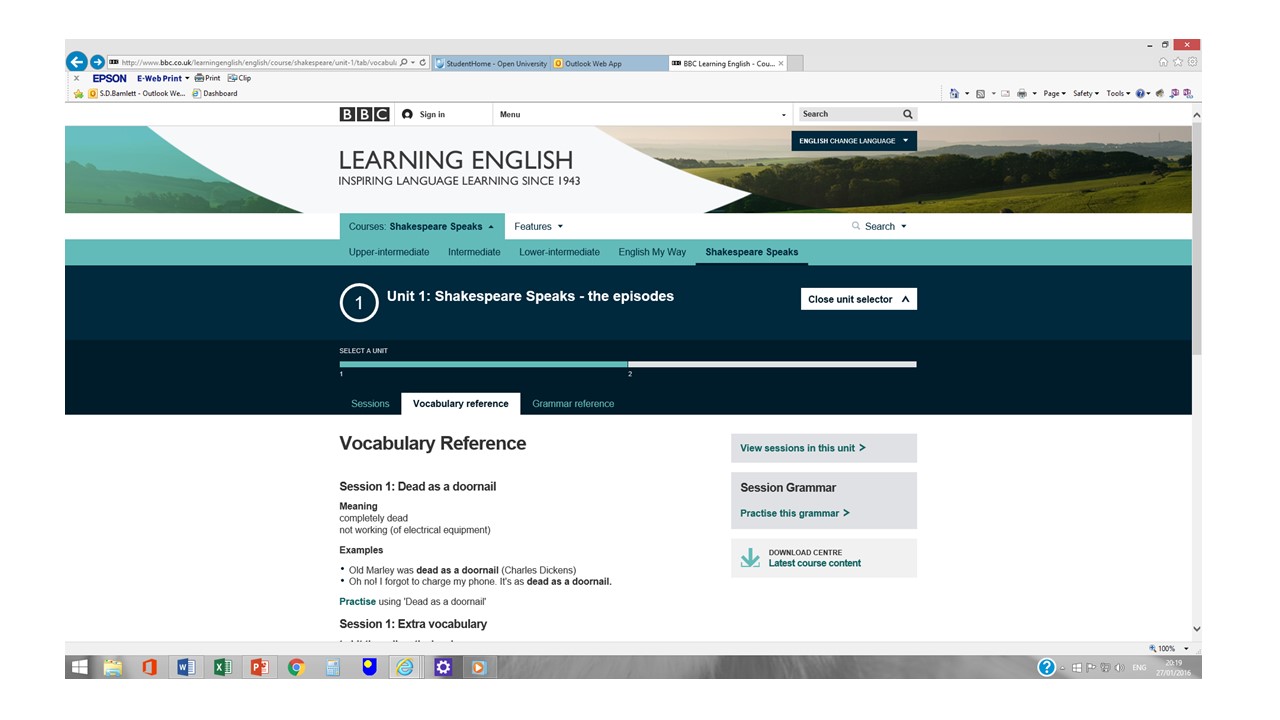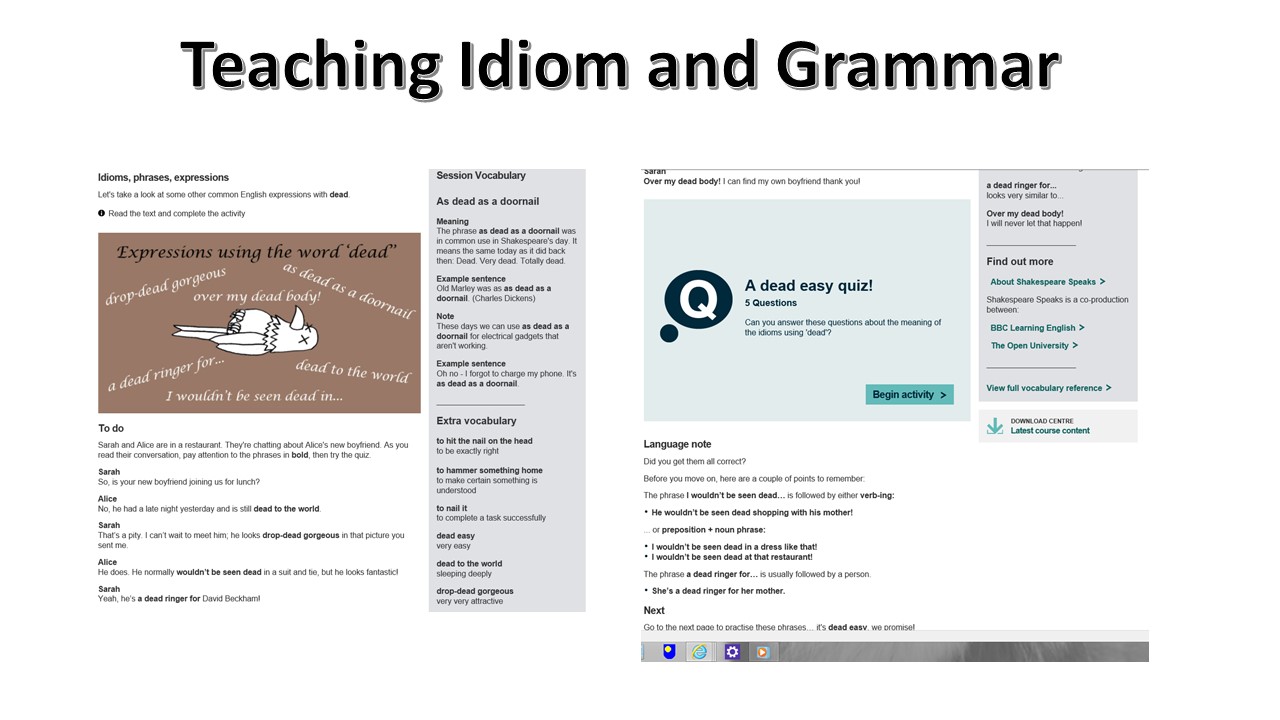This short
module is an example from the BBC collaboration with the OU on ‘Learning
English’. It is multi-modal, interactive and links to additional resources to
extend or individualise study. Here are some of the features (illustrated
throughout):
Multi-modality
Short
(4 min.) radio play (Voice)
Playful
language use throughout to show idioms related to death in ‘real’ linguistic
contexts. These are not always signposted so facilitate discovery learning.
Cartoon
illustration
Specific Learning sections
Illustrations
to allow identification of words (donkey)
Bulleted
lists in boxes
Hyper-Link
to background of project and progression beyond the module
Hyper-Link
to transcript
Hyper-Link
to the actors and crew of the play
Interactive quiz – assesses first level knowledge
Instantaneous Feedback on the quiz, allowing retrial – practice learning,
with some rote revision.
Interactive
pages with abstract of points of learning for –
Vocabulary
Grammar
Is it
innovative?
None of the
tasks are new or outside the range of Enlish Language Teaching and EFL
Teaching. However, their combination in such a short space, with subdivision
between sub-modules, whichare linked by marginal ‘lists’ uses the ‘attractive affordances’
of digital presentation, especially multi-modality, interactivity and feedback and
hyper-linked units in selectable sequence. There is teaching design but no
teacher. It could, of course, be combined with a teacher face-to-face.
In one important sense, it is FAR from innovative. It supports a myth of linguistic creativity being based in the 'genius' of nationally regarded INDIVIDUALS. It tends to see language as a merely neutral medium of expression with an almost 'natural' growth. But that is a far larger issue - I'll leave it for E854 reflections
H817 Week 2: Activity 5: Shakespeare Speaks: Lesson 1 . Innovative?
Activity 5: Shakespeare Speaks: Lesson 1 . Innovative?
Available from: http://www.bbc.co.uk/learningenglish/english/course/shakespeare/unit-1/session-1 (Accessed 27/01/2016)
(BBC / OU)
This short module is an example from the BBC collaboration with the OU on ‘Learning English’. It is multi-modal, interactive and links to additional resources to extend or individualise study. Here are some of the features (illustrated throughout):
Multi-modality
Short (4 min.) radio play (Voice)
Playful language use throughout to show idioms related to death in ‘real’ linguistic contexts. These are not always signposted so facilitate discovery learning.
Cartoon illustration
Specific Learning sections
Illustrations to allow identification of words (donkey)
Bulleted lists in boxes
Hyper-Link to background of project and progression beyond the module
Hyper-Link to transcript
Hyper-Link to the actors and crew of the play
Interactive quiz – assesses first level knowledge
Instantaneous Feedback on the quiz, allowing retrial – practice learning, with some rote revision.
Interactive pages with abstract of points of learning for –
Vocabulary
Grammar
None of the tasks are new or outside the range of Enlish Language Teaching and EFL Teaching. However, their combination in such a short space, with subdivision between sub-modules, whichare linked by marginal ‘lists’ uses the ‘attractive affordances’ of digital presentation, especially multi-modality, interactivity and feedback and hyper-linked units in selectable sequence. There is teaching design but no teacher. It could, of course, be combined with a teacher face-to-face.
In one important sense, it is FAR from innovative. It supports a myth of linguistic creativity being based in the 'genius' of nationally regarded INDIVIDUALS. It tends to see language as a merely neutral medium of expression with an almost 'natural' growth. But that is a far larger issue - I'll leave it for E854 reflections